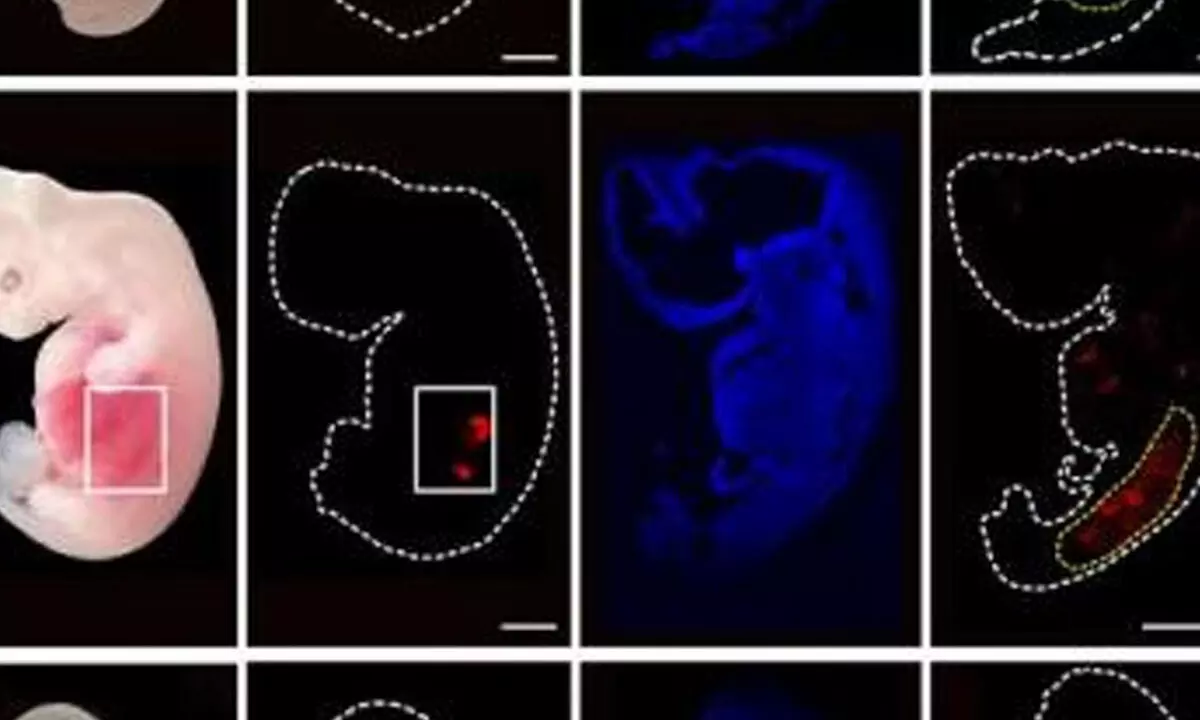Key Breakthrough: Chinese integrate human stem cells into pig embryos

In a significant breakthrough, Chinese scientists have for the first time in the world successfully created kidneys with human cells in pig embryos -- a big advance that may one day pave the way for human organ transplantation and tackle shortages
Beijing: In a significant breakthrough, Chinese scientists have for the first time in the world successfully created kidneys with human cells in pig embryos -- a big advance that may one day pave the way for human organ transplantation and tackle shortages. When transferred into surrogate pig mothers, the developing humanised kidneys had normal structure and tubule formation after 28 days.
This is the first time that scientists have been able to grow a solid humanised organ inside another species, though previous studies have used similar methods to generate human tissues such as blood or skeletal muscle in pigs. The researchers focused on kidneys because they are one of the first organs to develop, and they’re also the most commonly transplanted organ in human medicine.
“Rat organs have been produced in mice, and mouse organs have been produced in rats, but previous attempts to grow human organs in pigs have not succeeded,” said Liangxue Lai of the Guangzhou Institutes of Biomedicine and Health, Chinese Academy of Sciences, and Wuyi University in China.
“Our approach improves the integration of human cells into recipient tissues and allows us to grow human organs in pigs,” Lai added. The research appeared in the journal Cell Stem Cell. Integrating human stem cells into pig embryos has been a challenge because pig cells outcompete human cells and pig and human cells have different physiological needs.
For the breakthrough, the team first created a niche within the pig embryo so that the human cells would not have to compete with pig cells by using CRISPR to genetically engineer a single-cell pig embryo so that it was missing two genes that are needed for kidney development.
The researchers then engineered human pluripotent stem cells -- cells that have the potential to develop into any cell type -- to make them more amenable to integration and less likely to self-destruct by temporarily shutting down apoptosis.
Then, they converted these cells into “naive” cells resembling early human embryonic cells by culturing them in a special medium. Before implanting the developing embryos in surrogate sows, the researchers grew the chimeras in conditions that were optimised to provide unique nutrients and signals to both the human and pig cells, since these cells usually have disparate needs.
Altogether, the researchers transferred 1,820 embryos to 13 surrogate mothers. After either 25 or 28 days, they terminated gestation and extracted the embryos to assess whether the chimeras had successfully produced humanised kidneys. The researchers collected five chimeric embryos for analysis (two at 25 days and three at 28 days post-implantation) and found that they had structurally normal kidneys for their stage of development and were composed of 50-60 per cent human cells.
At 25-28 days, the kidneys were in the mesonephros stage (the second stage of kidney development); they had formed tubules and buds of cells that would eventually become ureters connecting the kidney to the bladder. The team next wants to allow the kidneys to develop for a longer duration. They’re also working to generate other human organs in pigs, including the heart and pancreas.
The long-term goal is to optimise this technology for human organ transplantation, but the researchers acknowledge the work will be complex and could take many years. Meanwhile, the technology could also be used to study the development of human organs and developmental diseases.














